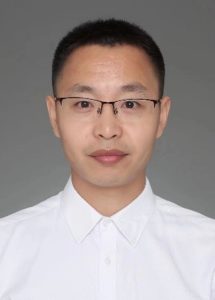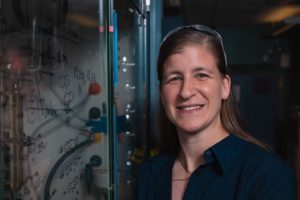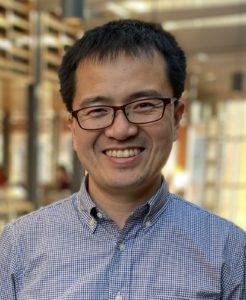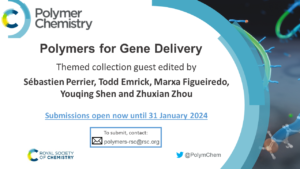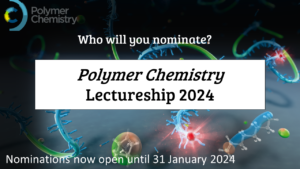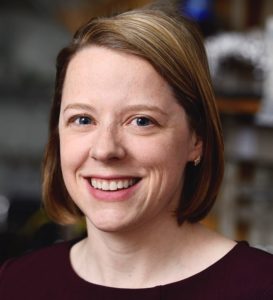We are very pleased to announce the Polymer Chemistry themed collection on Chalcogen Containing Polymers!
Chalcogen-based polymers have seen a resurgence in interest over the last several years. Due to the versatile and intriguing chemistry of sulfur, selenium and tellurium, polymers containing these elements have found diverse applications in polymer and material science. This collection includes studies on the synthesis and applications of these polymers, as well as fundamental theoretical and mechanistic studies. The Guest Editors for this collection are:
- Professor Justin M. Chalker (Flinders University, Australia)
- Professor Rongrong Hu (South China University of Technology, China)
- Professor Jeffery Pyun (University of Arizona, U.S.A.)

In their Editorial, Guest Editors Justin M. Chalker, Rongrong Hu and Jeffrey Pyun focus on the synthesis, structures, and functions of a large variety of sulfur- and selenium-containing polymers, including sulfur-rich polymers prepared from inverse vulcanization or related approaches, polysulfites, polysulfones, poly(disulfide)s, polythioethers, polydithiocarbonates, polymonothiocarbonates, polythioamides, poly(thiazolidin-2-imine)s, and conjugated polythiophenes, which have been synthesized from readily available chalcogen-containing monomers, such as elemental sulfur, SO2, thiols, carbonyl sulfide, S/Se-containing vinyl monomers, cyclic thiocarbonates, diisocyanates and more.
The full collection can be found here and we have also highlighted a selection of articles below. We hope you enjoy these and the rest of the articles included in the collection.
Organosulfur polymer-based cathode materials for rechargeable batteries
Siyuan Ren, Pengfei Sang, Wei Guo and Yongzhu Fu
Polym. Chem., 2022, 13, 5676-5690
Fabrication of multi-responsive photonic crystals based on selenium-containing copolymers
Bin Xu, Xiaoliang Ma, Anqi Dai, Xiaofeng Pan, Xiangqiang Pan, Na Li and Jian Zhu
Polym. Chem., 2022, 13, 4290-4297
Molecular level understanding of the chalcogen atom effect on chalcogen-based polymers through electrostatic potential, non-covalent interactions, excited state behaviour, and radial distribution function
Asif Mahmood, Ahmad Irfan and Jin-Liang Wang
Polym. Chem., 2022, 13, 5993-6001
Economical synthesis of functional aromatic polythioamides from KOH-assisted multicomponent polymerizations of sulfur, aromatic diamines and dialdehydes
Yang Hu, Lihui Zhang, Zhuang Wang, Rongrong Hu and Ben Zhong Tang
Polym. Chem., 2023, 14, 2617-2623
A comparison of adhesive polysulfides initiated by garlic essential oil and elemental sulfur to create recyclable adhesives
Anthony E. Davis, Kyler B. Sayer and Courtney L. Jenkins
Polym. Chem., 2022, 13, 4634-4640
Enhancement of thermomechanical properties of sulfur-rich polymers by post-thermal treatment
Nara Han, Woongbi Cho, Jae Hyuk Hwang, Sukyoung Won, Dong-Gyun Kim and Jeong Jae Wie
Polym. Chem., 2023, 14, 943-951
Straightforward synthesis of aliphatic polydithiocarbonates from commercially available starting materials
Timo Sehn, Birgit Huber, Julian Fanelli and Hatice Mutlu
Polym. Chem., 2022, 13, 5965-5973
Thiolactone chemistry, a versatile platform for macromolecular engineering
Nicolas Illy and Emma Mongkhoun
Polym. Chem., 2022, 13, 4592-4614
Mechanical properties and structures under the deformation of thiophene copolymers with cyclic siloxane units
Takuya Matsumoto, Masaki Kashimoto, Chihiro Kubota, Shohei Horike, Kenji Ishida, Atsunori Mori and Takashi Nishino
Polym. Chem., 2022, 13, 5536-5544
Facile construction of functional poly(monothiocarbonate) copolymers under mild operating conditions
Thomas Habets, Fabiana Siragusa, Alejandro J. Müller, Quentin Grossman, Davide Ruffoni, Bruno Grignard and Christophe Detrembleur
Polym. Chem., 2022, 13, 3076-3090
All the articles in the collection are currently FREE to read until 17th November 2023!

Comments Off on Chalcogen Containing Polymers themed collection


